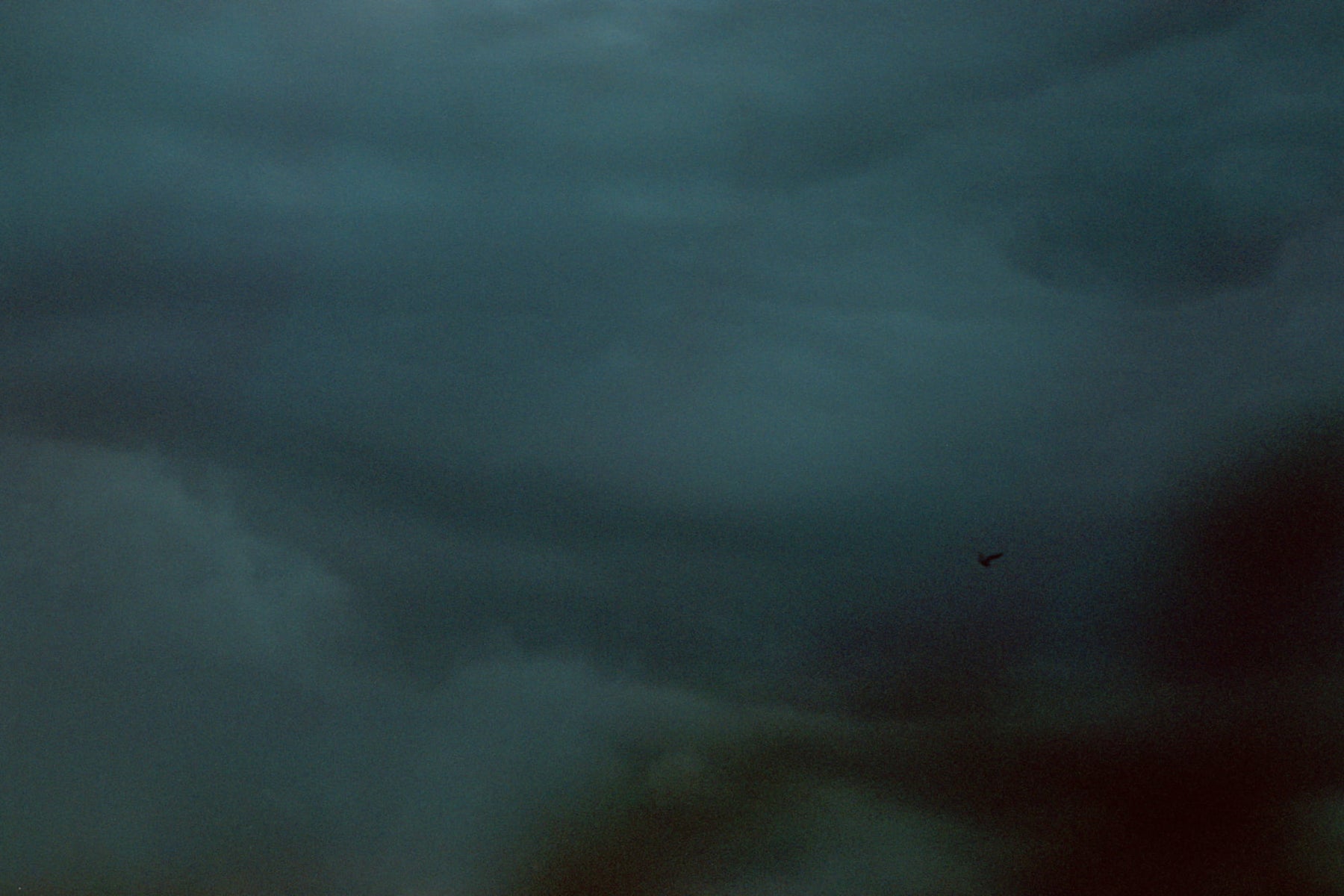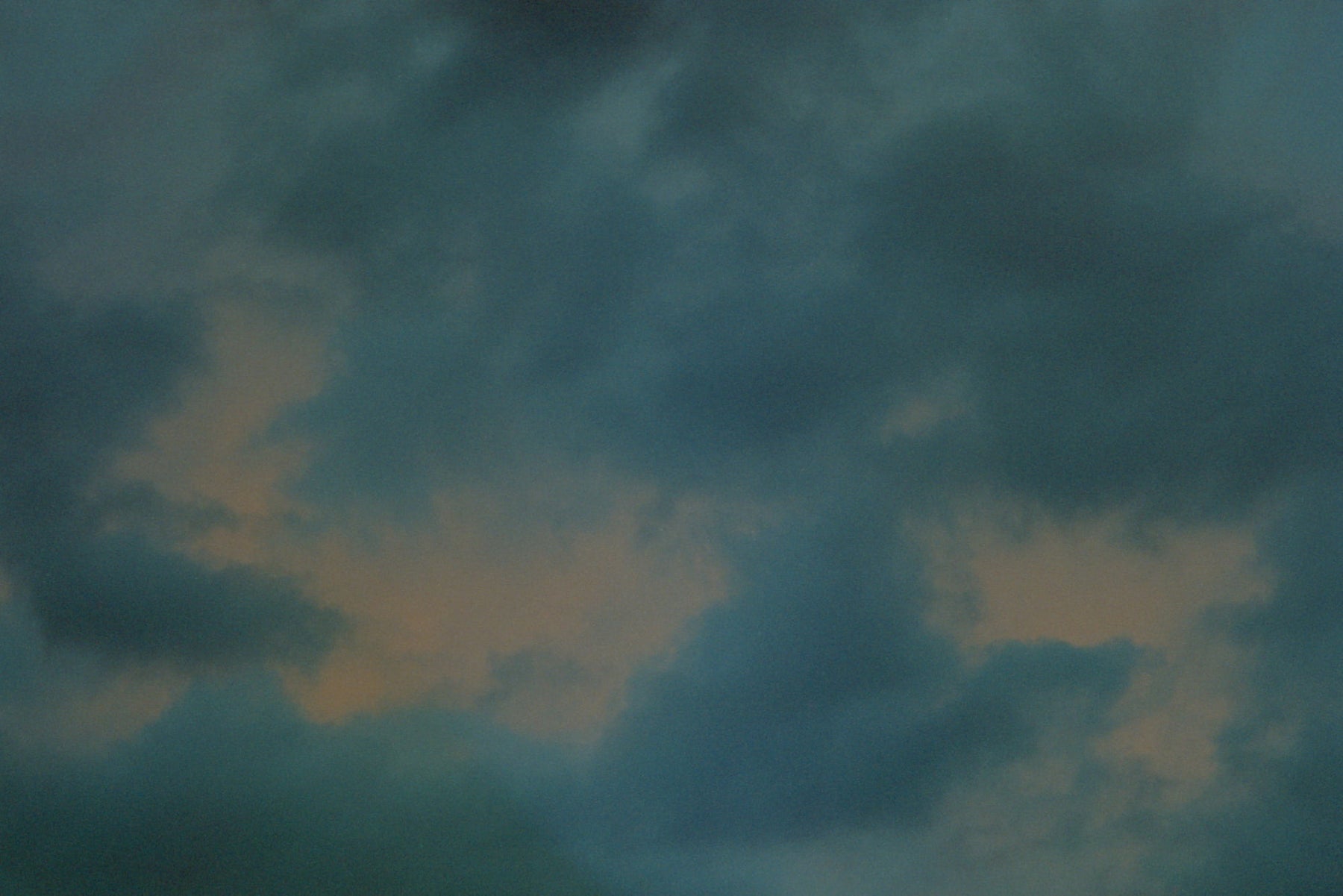
Birds and the Quiet
Night falls slowly as a flock of black birds passes north-ward, searching for a shelter through the night. Soon there will be nothing but silence, and the occasional howling of the wind. It is late April in the Danish forests, and the tall beeches stand as shadows by the lake shore. They are waiting for milder seasons to come, but the only thing approaching now, is the end of the day.

Before and after the pause
There is nothing unfamiliar in witnessing the dusk of evening. The cyclic movement of nature, a passage of time which was never any different. Darkness, light and darkness again. Yet, it carries a sense of longing, as if darkness was something distant, a remnant of history, echoing a time before evenings were lit up by streetlights, screens and production halls. Before the extent of technology grew, eroded the daily pauses and changed our understanding of rest. Today the coming of dusk, doesn’t naturally mark a time for slowing down, and so we have become more alienated from stillness itself. From the cooling of the atmosphere that makes the wind settle, or the bird finding shelter under branches and leaves.
Changes in man’s relation to silence pull threads to the historical period of early European industrialization. The invention of electric light initiated a period of immense productivity. From this point, a culture of wakefulness slowly expanded. Initially as nightshifts, creating a sleepless industry and later as urban spaces in constant illumination. Suddenly the balance between night and day was manipulated by an abundance of artificial light. This changed the perception of sleep, made it inferior to the values of modernity, until it gradually became part of capitalism itself. Highly commercialised, the bed is now part of a sleep-industry which has developed within the ethos of a wakeful culture. The phrase“we sleep a third of our lives, which determines the value of our time being awake, is articulated from the same ideologic position and reveals an instrumentalised narrative, reducing rest to a servant for the waking hours.

The Change of Beds
Is it stillness that makes you wander the forest trails? The echo of something missing. Would I be able to find rest here? Lying in the tall grass or the cold forest floor. And what is a bed anyway? Once it was a refuge, a place to find quiet, but now it has become less clear. A piece of furniture which, despite serving the values of our time, seems to hold a problem of passivity, a uselessness disrupting the cycles of production and consumption. It is the same uselessness that emerge as a mist rolling in from the lakes. The ending of the day, hidden from a world, that cannot allow endings to exist. In recent years, this world has enabled a wave of technological optimism to flood the bedrooms, undermining sleep even further. With terms such as smart beds and living islands, a digital wave of built-in phone chargers and mechanical elevation is challenging the nighttime, compromising its worth through an emphasis on online presence. Now the meaning of going to bed has become more blurred, at once encouraging people to recover, but also to act, as if daytime is the only time that exists.
Towards Sleep
Today scientists are studying birds and other animals to find a comprehensive explanation behind the purpose of sleep. The recurring darkness remains one of life’s great mysteries, and maybe the lack of understanding could form a change of perspective. Watching the evening birds, one gets reminded, not why we sleep, but that we sleep. That sleep returns each night and that it carries an ending with it. In this sense, sleep is not only a physical need, but something deeply existential. It is a parenthesis unspun between what was and what will be, leaning towards tomorrow, but always in the shadow of what came before. Seen in this light, sleep could be an act of modesty, a resistance against a society, obsessed with desires for more. It could be a piece of furniture, not facilitating the act of doing but shaping the place of being. A sanctuary, reminding us of the time that we have already been given. Thankfulness arises from such places and so can calmness itself. As an evening in the forest, where the mind is no longer separated from the body, or distracted about thoughts of what lies ahead. When we are not supposed to do anything but let quietness emerge.
